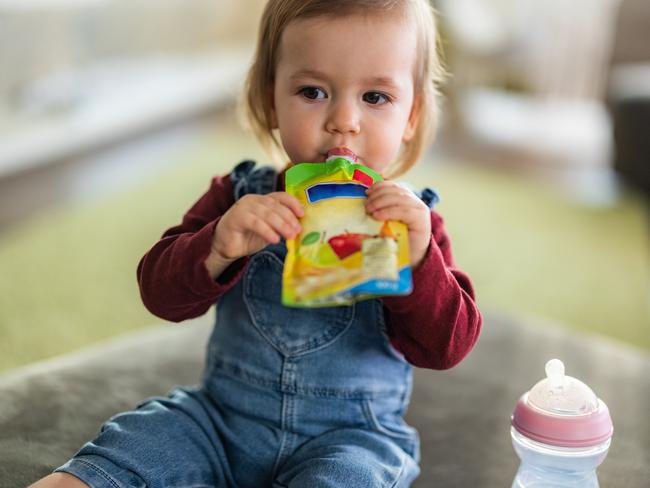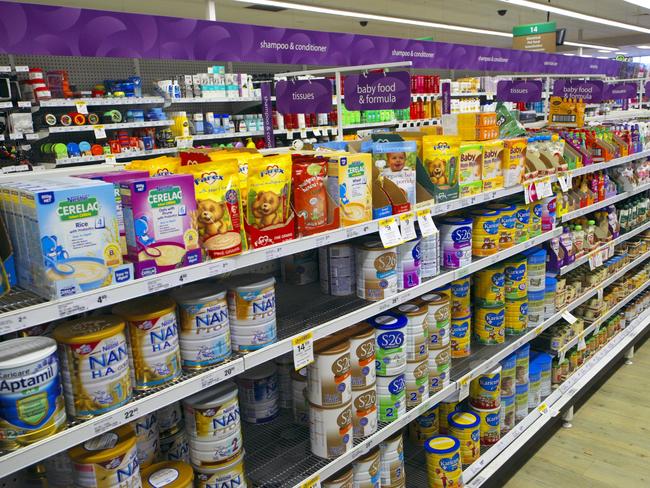Study finds surprising detail in food for infants, toddlers
Easy to prepare grocery items have caused conflicting views over the years, but now a study suggests they are failing our children.

Babies
Don't miss out on the headlines from Babies. Followed categories will be added to My News.
Easy to prepare grocery items have caused conflicting views over the years, but now a study suggests they are failing our children.
Monash University examined ready-made pouches and boxes sold in Australian supermarkets and found less than a quarter met all nutrient requirements outlined by the World Health Organisation.
Just under half — 43 per cent — had more than the recommended levels of sugar.
The study, led by Dr Alexandra Chung from the Department of Nutrition, Dietetics and Food at Monash University, looked at foods for infants and toddlers in Aussie supermarkets to see how much they complied with the WHO Regional Office for Europe’s Nutrient and Promotion Profile Model (NPPM).

It looked at a total of 45 items to see if they measured up to the “appropriate promotion” of food products for this age group.
The make up and labelling requirements of food is regulated by the The Australia New Zealand Food Standards Code.
Last year, commercial baby food sales created $370 million in revenue, with one in two kids up to five years old consuming these products one or more days a week.
The study, which was published in Public Health Nutrition, found that none of the 45 products that were assessed met all of the labelling and promotional requirements from WHO.
All of the items that were looked at included at least one promotional marketing claim that isn’t allowed under WHO guidelines.

The claims let parents think the foods were healthy, when in fact they were high in sugar and didn’t offer the variety of textures and flavours needed by kids.
Dr Chung claimed many of the claims commonly made on foods for infants and toddlers aren’t rehulared under the Food Standards Code.
“This includes claims that make appeals to health and promote the product as ideal for young child feeding such as ‘natural’, ‘organic’, ‘no nasties’, ‘no preservatives’ and ‘for tiny hands’,” she said.
“There is a distinct gap in the current regulation of commercial foods for infants and toddlers that allows manufacturers to influence children’s diets through the promotion of these products.”
Originally published as Study finds surprising detail in food for infants, toddlers





